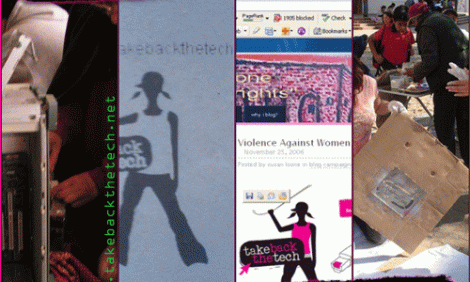
Editorial
No easy reading
Nora Quebral (2012) - who is credited with coming up with the concept of 'development communication' in the early 70s - argued recently in an account of Asian domestic workers in the Middle East, and the right-to-drive protest by women in Saudi Arabia, that any analysis of rights is necessarily deeply contextual: “A tough question to answer would be: in which [of these two societies] do women…

In depth
Korea: Women’s privacy in danger through surveillance and leaking of private information
“Digitising social welfare: Challenges of privacy” GISWatch report from Korea points out instances where women in the country have leveraged even non-political internet forums to discuss socio-political issues and to organise offline on crucial issues. However, it also highlights several government policies that expose women to privacy violations and related abuse. In particular, it points out…

In depth
Jamaican household workers use cell phones to protect their rights and improve the working conditions
Leith Dunn and Hopeton Dunn from the Institute for Gender and Development Studies Mona Unit, and Mona ICT Policy Centre, at the University of the West Indies, are the authors of the Global Information Society Watch article entitled “Women’s rights, gender and ICTs: Empowering household workers in Jamaica”. In this interview they told GenderIT.org why they chose this subject, how the sector of…

In depth
Cook Islands: Pushing for women leaders
The Global Information Society Watch Cook Islands report was released, written by Maureen Hilyard, Alexis Wolfgramm and Lynnsay Rongokea from the Pan Pacific and Southeast Asia Women’s Association. Analía Lavin interviewed Maureen Hilyard, one of the authors, on the main issues women face online, on gender equality in the political system, and on the role of the media.

In depth
Democratizing access and use of ICTs for domestic workers in Uruguay
The Global Information Society Watch 2013 report, written by Goñi and Ana María Laura of ICTWatch (ObservaTIC), of the University of the Republic of Uruguay, is entitled "ICTs as a means for empowerment and influence: A democratising proposal for female domestic workers in Uruguay". GenderIT.org interviewed Goñi to understand how inequality in access to and ownership of ICTs affects this sector…

Publication
GISWatch 2013: Women’s rights, gender and ICTs
A new report released by the Association for Progressive Communications (APC) and the Humanist Institute for Cooperation with Developing Countries (Hivos) explores women’s rights and gender through the lens of information and communications technologies (ICTs).




